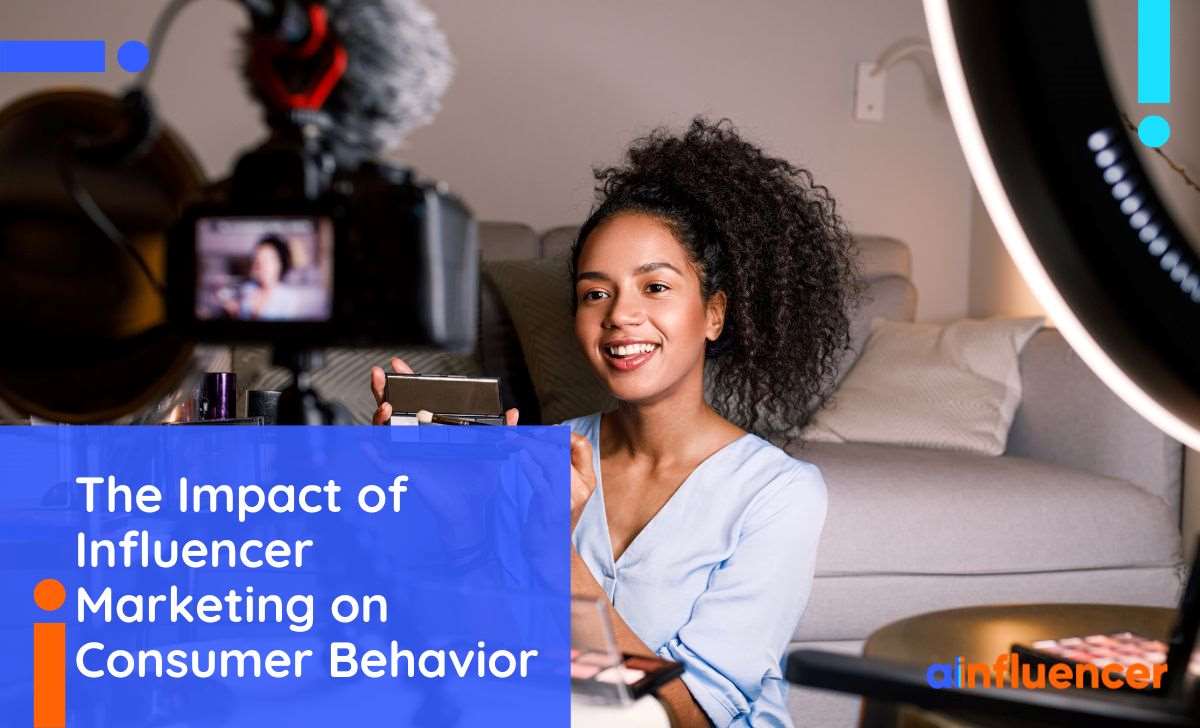Influencer marketing, a novel subset of social media marketing, has significantly sculpted the consumer behavior landscape in recent years.
Influencer marketing strategy leverages the reach and credibility of popular individuals, known as influencers, to subtly promote products and services to their vast follower bases.
The Evolution and Prevalence of Influencer Marketing
Influencer marketing has been around for decades, but it wasn’t until the rise of social media platforms that it became a mainstream marketing strategy to increase brand awareness. With the popularity of YouTube, Instagram, TikTok, and other social media channels, influencers have amassed immense followings and have become powerful voices in the digital landscape. The rise of influencer marketing can be attributed to several factors, including:
- The decline of traditional advertising effectiveness,
- The increasing use of ad blockers by consumers,
- The rise of social media as a communication and community-building platform,
- The growing importance and reliance on online reviews and recommendations.
As a result, brands have shifted their focus to influencer marketing as a more authentic and engaging way to reach their target audience. Today, influencer marketing is a billion-dollar industry that shows no signs of slowing down.
The Impact of Influencer Marketing on Consumer Behavior
Influencer marketing has significantly altered consumer behavior. Today’s consumers are less receptive to direct advertisements and more interested in real-life experiences and recommendations.
Influencers, with their cultivated relationships and perceived authenticity, can impact purchasing decisions by leveraging trust and relatability. Brands can further enhance this engagement by incorporating a CRM system. CRM systems allow brands to manage and analyze customer interactions throughout the customer lifecycle.
They serve as a crucial tool in influencer marketing, enabling a more personalized approach, fostering long-term relationships with consumers, and ultimately driving customer retention and sales growth.
The Importance of Authenticity in Influencer Marketing
The success of influencer marketing lies in its ability to create genuine and relatable content. Consumers are increasingly mistrustful of traditional advertising methods, with 88% saying authenticity is a key factor when deciding which brands to support. Therefore, influencers’ authenticity and transparency are crucial for building trust with their audience. It also helps to ensure that the promoted products or services align with their brand and values.
Ethics and Potential Challenges Associated with Influencer Marketing
As influencer marketing becomes more prevalent, so do concerns about ethical practices. The lack of clear regulations and guidelines can lead to potential challenges for both brands and influencers. For example, the Federal Trade Commission requires influencers to disclose any sponsored content or material connections with a brand.
Failure to do so can result in legal consequences for both parties. Other ethical considerations include promoting unhealthy products, engaging in deceptive practices, and buying fake followers or engagement.
Strategies for Maintaining Ethical Standards in Influencer Marketing
To avoid these potential challenges and maintain ethical standards, brands should carefully select influencers with a strong and authentic following. They should also clearly outline the expectations and guidelines for sponsored content in their contracts with influencers.
Similarly, influencers must be transparent about any partnerships or sponsorships to maintain trust with their audience. They should also carefully consider the products or services they promote and ensure they align with their brand values and beliefs.
Furthermore, utilizing tools and platforms that monitor for fake followers and engagement can help mitigate the risk of unethical practices. Regular audits of influencer partnerships can also help identify any concerning trends or issues.
The Future of Influencer Marketing on Consumer Behavior
- With the rise of social media and influencer marketing, consumer behavior has shifted towards more trust-based decision-making.
- Influencers have a significant impact on their followers’ purchasing decisions, as they are seen as relatable and authentic sources of information.
- However, there is growing concern about the authenticity and transparency of sponsored content, which can lead to a decline in consumer trust and loyalty towards both the brand and the influencer.
- As a result, brands and influencers must maintain ethical standards in their partnerships to ensure long-term success and positive consumer perception.
Conclusion
Influencer marketing has become an integral part of many brands’ marketing strategies, but it also comes with its own set of challenges. Maintaining ethical standards and transparency is crucial for the success of influencer marketing in the long run.
Brands and influencers must work together to establish clear guidelines and expectations, as well as regularly monitor their partnerships to avoid any unethical practices. With these measures in place, influencer marketing can continue to effectively influence consumer behavior and drive positive results for both brands and influencers.
FAQs – Impact of Influencer Marketing on Consumer Behavior
Influencer marketing is a form of marketing that focuses on using individuals with a significant online presence and social influence to promote products, services, or brands. These individuals, known as influencers, typically have a large following on social media platforms such as Instagram, YouTube, Twitter, or TikTok.
The goal of influencer marketing is to leverage the influencer’s credibility, trust, and relationship with their audience to endorse and showcase a brand or product. Instead of directly promoting the product in traditional advertising methods, brands collaborate with influencers who create content featuring the product in a more authentic and relatable way.
Becoming an influencer marketer involves a combination of building a personal brand, creating engaging content, and networking within your niche. Here are some steps to help you get started:
Choose Your Niche: Pick a topic you’re passionate about and want to share with others.
Build Your Brand: Develop a unique style and voice that sets you apart.
Create Great Content: Share quality photos, videos, or articles that resonate with your target audience.
Be Consistent: Stick to a regular posting schedule to keep your audience engaged.
Use Social Media: Share your content on platforms like Instagram, YouTube, TikTok, or a blog.
Understand Your Audience: Use analytics to know your followers and tailor content to their interests.
Collaborate: Work with other influencers and engage in the community to expand your reach.
Network: Connect with brands and influencers in your niche online and at events.
Explore Monetization: Look into sponsored content, affiliate marketing, and brand partnerships.
Stay Informed: Keep up with social media trends and changes to adapt your strategies.
Follow Legal Guidelines: Disclose sponsored content and follow platform rules for transparency.
Learn and Adapt: Analyze what works, be open to feedback, and evolve your approach over time.








